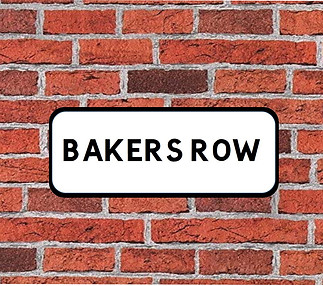
Downloadable resources for use in the classroom or at home
These resources have been created by the Institute for Name-Studies at the University of Nottingham. They have been designed with Key Stage 2 pupils in mind, but could be appropriate for younger children, with some supervision.
We welcome any feedback that will help us to make improvements - please email us at namestudies@nottingham.ac.uk. We'd also love to see pictures of your creations!


1. Shropshire Hills and Mountains
The Anglo-Saxons had an extensive vocabulary to describe hills and mountains. Find out why that was by building 3D models of four Shropshire hills and mountains. This exciting resource pack provides downloadable instructions, mountain templates and images of the hills, so that you can see what you're constructing. All you'll need is a printer, paper, cardboard, scissors and glue! Have fun!
2. Shropshire Animals, Past and Present
Lots of Shropshire place-names reveal the presence of animals, birds, fish and insects in the Anglo-Saxon landscape. Some of these may surprise you, as they are no longer found in Great Britain. This exciting resource pack provides downloadable instructions alongside a set of Anglo-Saxon animal flashcards. All you'll need is a printer and paper - a laminator would be useful, but is not essential. Have fun!
Instructions for download: Shropshire Animals, Past and Present
Shropshire Animals Flashcards






3. Human Geography: Work in Medieval Shropshire
Because place-names are often hundreds of years old, they can tell us all sorts of things about the medieval world. This cross-curricular resource pack focuses on work in Shropshire, and includes downloadable instructions for a series of exercises, three sets of flashcards, and a map of work-related Shropshire place-names. This module looks at Shrewsbury street-names as well as Shropshire place-names, and helps children to reconstruct the human geography of Shropshire's medieval past.






4. Encountering Anglo-Saxon Shropshire
Many of the names of Shropshire's villages, towns and cities were originally created by the Anglo-Saxons. They provide us with an exciting resource for understanding how the Anglo-Saxons visualised Shropshire. This cross-curricular resource pack allows children to look at Shropshire through the eyes of the Anglo-Saxons, and includes downloadable instructions for a series of exercises, alongside accompanying maps and a place-name themed game of Snap! This fun module encourages children to think about Shropshire's settlement by the Anglo-Saxons, to describe key aspects of human geography, and to develop the skills needed to communicate geographical data through maps.

Map 1
Place-Name Snap
Naming Places
Map 2
Map Icons
5. Living with Rivers in Medieval Shropshire
This resource pack combines aspects of English, History, Geography, Science, Art and Design and Design and Technology, using medieval river- and place-names to understand the importance of rivers in the history of human settlement. Looking at Shropshire rivers - in particular the River Severn - this module will help students to explore the human geography of river valleys, and to think about human interactions with and responses to major landscape features.
6. Who Lived Here? Migration in Shropshire's Past
This resource pack combines aspects of Citizenship, English, History, Geography, Maths and Art and Design to understand historical migration into Shropshire. Assessing more than 1,500 years of the county's history, this module uses place-names to assess who lived in Shropshire in the past: where did people come from, and what languages did they speak? From the Britons to the Normans, this lesson pack helps children to think about the diverse origins of Shropshire's population. A range of sources, including place-names, maps and medieval documents will help them to build a rich picture of Shropshire's historical inhabitants. The pack will also give the children in your class the opportunity to become Norman knights arriving in eleventh-century Shropshire!
7. Our Shropshire Stories
In the summer of 2020, we ran a competition for children across the West Midlands to write a 500-word story based on one of twelve themes, each of which were associated with at least one Shropshire place-name. The themes were: bears, witch, goblins, fort, Vikings, archers, dragons, lynx, giants, queen, forge and swamp. Why not try this fun activity in the classroom or at home? For further information please contact us at namestudies@nottingham.ac.uk.
© Shropshire Archives


Goblin Styles Field
Broseley 'clearing of the fort-guardian'



Shoplatch 'archery place'
Lostford 'ford of the lynx'


Near & Far Diagonal Fields 'dragon's nook'
Kinlet 'royal share'
Lurkenhope 'hidden valley of the witch or wise-woman'
























